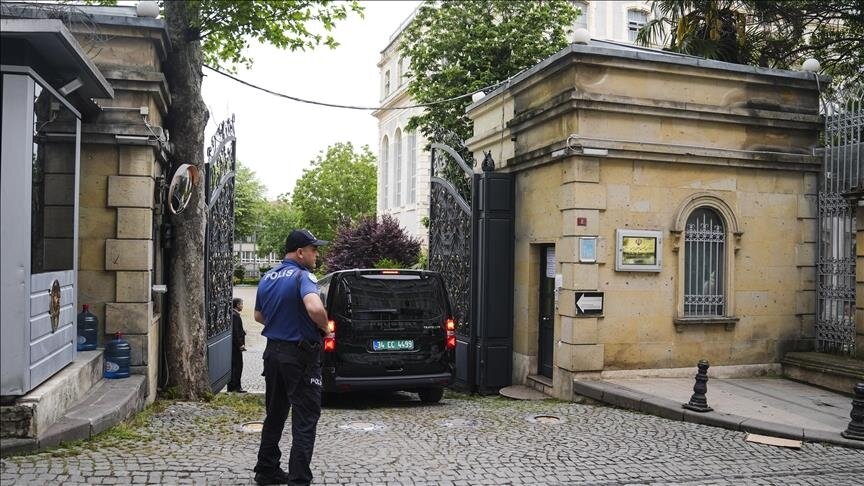Istanbul talks reassess Europe’s role in evolving global diplomatic landscape

MADRID – On Friday, May 16, Iran resumed nuclear negotiations with the United Kingdom, France, and Germany—collectively known as the E3—in the Turkish city of Istanbul.
This meeting of senior diplomats unfolds amid heightened geopolitical tension and uncertainty, as a potential fifth round of indirect talks between Tehran and Washington is anticipated in the coming days. This upcoming round could represent a pivotal moment, bringing both parties closer to a renewed understanding on the future of the 2015 Joint Comprehensive Plan of Action (JCPOA), the landmark nuclear agreement that once symbolized diplomatic progress and multilateral cooperation.
The talks with the E3 are far from a mere procedural step preceding the US-Iran dialogue. Rather, they reflect a strategic and nuanced effort by Tehran to maintain open diplomatic channels with Europe, and to gauge the evolving positions of European capitals regarding the possible reinstatement of international sanctions.
This dual-track approach underscores Iran’s diplomatic pragmatism in a complex international environment. Meanwhile, the European Union views these negotiations as a critical opportunity to regain some of its diplomatic weight after years of relative marginalization in key global issues—ranging from the Ukraine crisis and climate negotiations to the recent strategic realignments unfolding across West Asia.
Europe faces the challenge of strategic autonomy
Since Donald Trump’s presidency and the unilateral U.S. withdrawal from the JCPOA in 2018, the United States has signaled its intent to sideline Europe in many major geopolitical discussions. The abandonment of multilateral frameworks and the pursuit of bilateral initiatives—whether with Tehran, Moscow, or Beijing—have chipped away at the EU’s traditional role as a central pillar of the postwar international order. In particular, the imposition of U.S. secondary sanctions has tested European resolve and independence, especially regarding its relations with Iran.
The transatlantic relationship, once considered a cornerstone of global stability, has experienced unprecedented strain in recent years. Disagreements over pandemic management, trade disputes, divergent approaches to climate change, and contrasting strategies towards rising powers like Russia and China have all contributed to fracturing this once-solid alliance. This growing distrust was laid bare at international forums such as the Munich Security Conference, where European leaders openly criticized what they perceived as growing U.S. indifference—and even hostility—toward European interests and the continent’s security architecture.
Amid this evolving geopolitical landscape, the European Union faces a fundamental challenge: to what extent can and should it pursue a more autonomous foreign policy? The negotiations with Iran, therefore, are not merely about nuclear non-proliferation—they are a litmus test for Europe’s capacity to act independently and assert its influence on the global stage.
Within this tense and shifting environment, Tehran remains wary but not dismissive of European engagement. Interim Foreign Minister Abbas Araghchi has reiterated Iran’s willingness to continue talks with the E3, while cautioning against activating the “snapback” mechanism—a provision allowing the automatic re-imposition of UN sanctions on Iran without a new Security Council vote.
Araghchi has warned that resorting to snapback could have dire consequences: “A confrontational approach could lead to a global crisis in nuclear proliferation, the repercussions of which would directly impact Europe,” he said in an op-ed published by the French weekly Le Point.
From Tehran’s perspective, triggering snapback would effectively end European participation in the nuclear deal and obliterate the fragile trust that remains between the parties.
Iran’s concerns reflect a broader unease about the risks of escalating tensions and the potential unraveling of diplomatic gains painstakingly built over years of negotiation.
In this light, Tehran’s ongoing dialogue with the E3 serves as both a strategic safeguard and a platform to signal its red lines to the West.
Iran questions Europe’s response after U.S. withdrawal
From Iran’s viewpoint, much of the current deadlock stems from the limited response of European capitals following the U.S. withdrawal from the JCPOA in 2018. The decision by Washington to abandon the deal and reimpose sanctions forced European companies into a difficult dilemma.
According to Tehran, many chose commercial interests over multilateral commitments, complying with U.S. sanctions rather than upholding the deal’s promises.
“The promised economic benefits under the agreement never materialized,” Araghchi lamented. “European companies decided to comply with U.S. sanctions instead of honoring commitments made by their own governments.”
Despite this disappointment, Iran has maintained discreet contact with E3 diplomats since late last year, with the most recent meetings held in Geneva in February. Araghchi acknowledged the growing isolation of European powers in these talks: “Unfortunately, Europeans have somewhat isolated themselves due to their own policies. We do not want that to happen, which is why we have continued the dialogue.”
This ongoing interaction suggests that Iran still sees value in engaging Europe as an important interlocutor, even as the United States remains the central player in any potential final agreement.
An opportunity to redefine Europe’s role
With Iran-U.S. negotiations proceeding cautiously but steadily, the critical question is whether Europe will confine itself to a supportive role or strive to reclaim a central position in the diplomatic process. European diplomats, as reported by Western media, have not ruled out the possibility of activating the snapback sanctions mechanism if no substantive agreement is reached with Iran by August. However, such a move risks further hardening relations and undermining the prospects for a diplomatic resolution.
In this context, the Istanbul talks represent more than a routine negotiation—they are a test for Europe’s ability to project strategic autonomy and exercise leadership. By actively engaging in these discussions, the E3 can influence the course of the negotiations, steering them away from coercive tactics and toward constructive diplomacy.
The return to the negotiating table in Istanbul presents an opportunity to correct course. Europe can, if it chooses, play a constructive role and contribute to a gradual de-escalation of nuclear tensions. To do so, however, it must assume its historical responsibility and act with an independent voice rooted in collective interest and respect for international law.
Leave a Comment